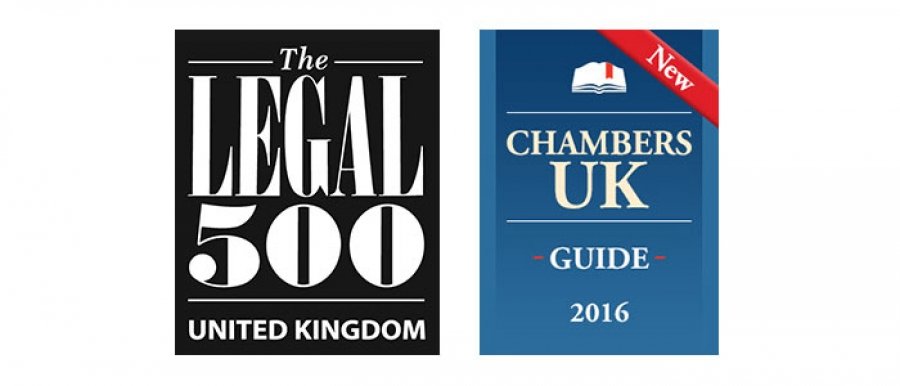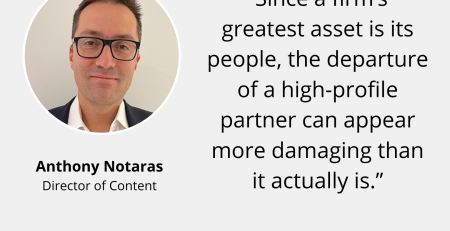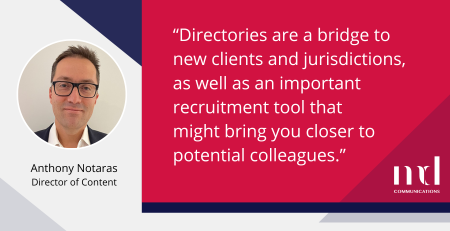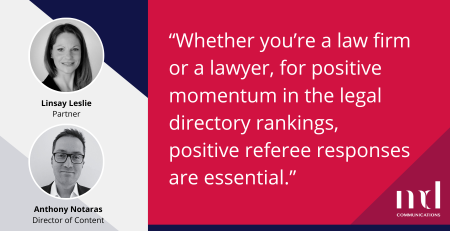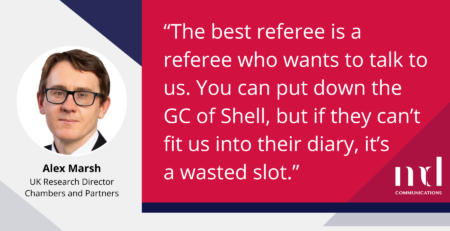I’m on a panel at the IBA next week discussing how law firms can best spend their marketing budgets and one of the questions we will be discussing is whether the directories still matter.
Some of you may remember that a few years ago, the publishers of the Legal 500 booked adverts at tube stations around the heart of legal London. The ads were a blown up fake entry from a soulmates-style page – the attributes the single lawyer sought included a requirement to be Legal 500 recommended.
It neatly summed up lawyers’ awkward relationships with the legal directories – a lawyer would likely scoff at the ad, but in fact would still look up a prospective date.
Legal directories have come in for plenty of stick over the years, ever since they first became an industry ‘thing’. Many have focused on criticisms of research that relies on qualitative and subjective comments and complained that rankings are won as long as you can ‘get your mates to say nice things about you’.
At MD Communications we have a number of ex-Legal 500 and Chambers editors and researchers on the team and one thing we can tell you is that positive comments from your ‘mates’ alone won’t get you recognised.
Whatever your view of the legal directories, it’s impossible to ignore their significance and we think they still have an important role to play.
Where did they come from?
With a history that exceeds a quarter of a century, both Legal 500 and Chambers & Partners have an impressive heritage when it comes to experience in researching and ranking lawyers and law firms worldwide.
The controversy that surrounds these rankings comes from the idea that firms and lawyers can somehow buy a place in a ranking. However, it’s worth noting that while there are paid for options available – for example, firms can buy directory profiles if recommended – both directories are at pains to point out that the actual research that determines the rankings is kept very separate from the process where cash is changing hands. Ex-researchers confirm that.
Why directories still matter
The duopoly of the Legal 500 and Chambers is here to stay. Consider this – despite huge changes in technology, the advent of LinkedIn, big data and the use of artificial intelligence, no product or publication has displaced the directories.
A quarter of a century on, they remain the most recent game-changer.
So, if you’re considering submitting to either of the directories this year, or wondering whether it’s worth continuing submissions processes from years gone by, we think it is – and here’s why.
Online referrals – both directories are now online, as well as in paper form, creating effectively two online databases from which firms can generate leads back to their own sites. It’s pretty simple to measure the online referrals that are generated using Google analytics so you’ll be able to quantify just how valuable this is to your business. Legal 500’s web traffic has increased by 23% in the last three years.
Attracting clients – ok, so there is some controversy over whether the directories really do fulfil this role for clients, indeed whether they ever did. It very much depends on your practice area specialisms and the reputation of your firm as to whether or not this is a benefit you could enjoy.
For those firms newly entering the sector and looking to be part of an existing landscape this kind of attention can be invaluable. Plus, there is no doubting the fact that while clients may not search Chambers or Legal 500 in order to find a new firm to work with, they are very likely to check out what these directories have to say about the firms and lawyers in question as part of the research for a potential new instruction.
The directories are an important part of the ‘background noise’ attached to a firm and individual lawyers. Ignoring them is like deciding restaurant critics aren’t here to stay because they can’t cook as well as chefs.
Industry recognition – this is certainly one of the main drivers for competing in the directories process. Whether you regard this as getting one up on the competition or ensuring that the firm name is mentioned in the right context, the rush for newly published directories, and the attention their launches receive, indicate that this is still a knowledge source that other firms, lawyers and in-house counsel pay attention to.
Marketing content and good PR – in an increasingly crowded legal marketplace it is becoming more and more challenging for practices to differentiate themselves from the competition and an endorsement from Chambers & Partners or Legal 500 is a useful tool.
Not only does the directory ranking provide a numerical value (obviously Band 1 generates the most goodwill) but, depending on the directory, there are comments published about a team, individual or practice that can be used on websites, in profiles and in a wide range of marketing materials.
An industry standard – in the face of all the criticism over the years, the directories continue to be strong and are widely regarded as an industry standard. It doesn’t matter if you think they succeed on merits, simply because there is no credible alternative, or as a result of egos in the industry, the directories aren’t going anywhere any time soon.
And, though the format may seem relatively unchanged, the online traffic of the Legal 500 and Chambers is not in decline, but has dramatically increased in recent times.
So, to conclude, yes directories do still matter. Whether you are looking to generate online referrals, to boost industry recognition or to upgrade your marketing materials, a ranking in Chambers & Partners and/or the Legal 500 can provide numerous benefits.
For the relatively little resource that is required to get the submissions together it is a cost effective way to boost profile whether you’re a US firm, UK team, independent practice or high street lawyer.
And hey, if nothing else, a good mention might lead you to love – once you’ve been checked out, obviously.
About us
MD Communications are experts at boosting the reputation of law firms and suppliers to the legal sector- whether that’s enhancing your legal directory submissions, raising your profile in the media or improving your social media presence.
Melissa Davis is the managing director of MD Communications, the international legal PR agency. She is also chair of the IBA Law Firm Management Committee Business Development Working Group and a member of the ABA Transnational Legal Practice Committee.
MD Communications is on Twitter @mdcomms
Sign up for our newsletter
Our monthly newsletter is full of useful tips and advice for law firms and suppliers to the legal sector who want to raise their profile.


